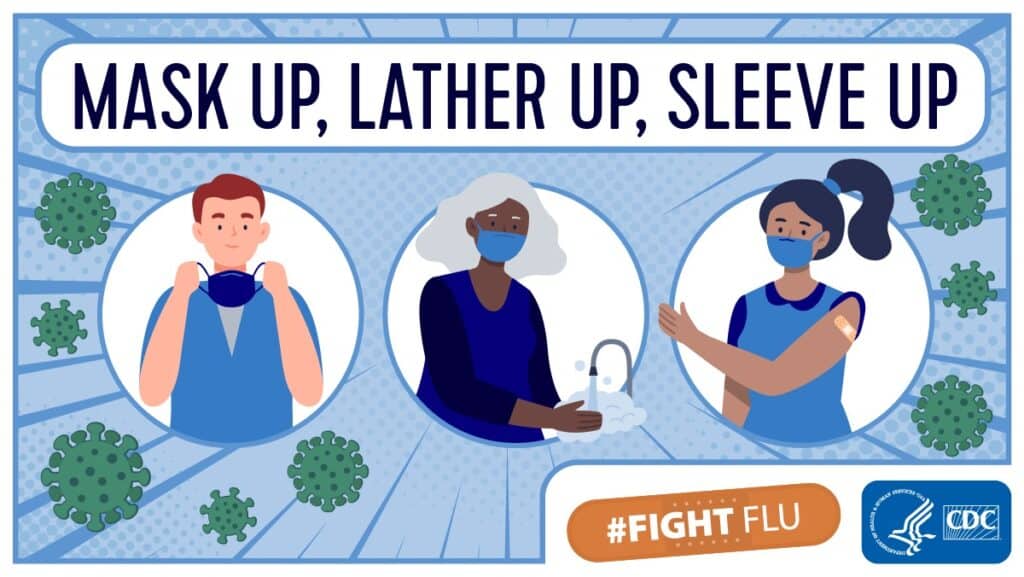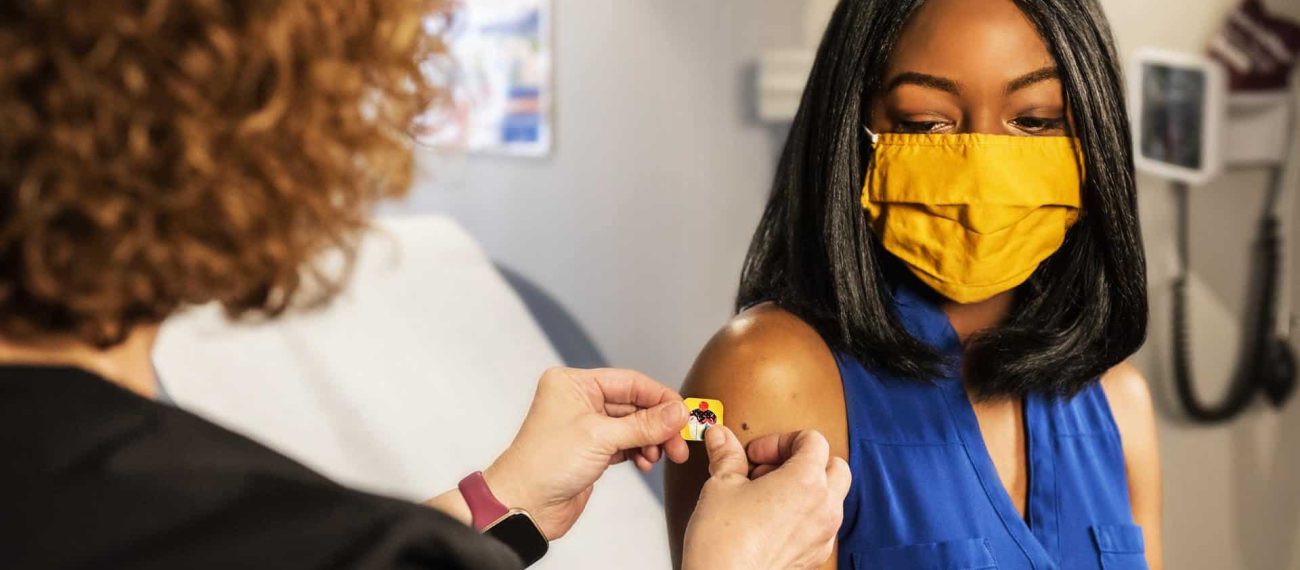If you’re living with HIV, you know you need to be extra vigilant when it comes to your health.
HIV attacks cells in the body’s immune system and, if untreated, gradually destroys the body’s ability to fight infections and certain cancers. Because of this, people with HIV are more likely to develop serious complications from viruses like the flu and COVID-19. This is especially true for those who have a very low CD4 cell count or who are not taking medicine to treat HIV.
The easiest way to protect yourself from these two viruses is to get their respective vaccines.
Thanks to vaccines, you are less likely to contract a virus. If you do get sick, you are less likely to be hospitalized due to complications.
People living with HIV should get the flu shot (not the nasal spray flu vaccine) each year. If you experience any flu symptoms, like body aches, a cough, fever, runny or stuffy nose, or a sore throat, contact your doctor right away. Antiviral drugs that treat the flu will work best when started as soon as possible. Learn more about the flu and people living with HIV.
COVID can be especially dangerous to those with medical conditions such as HIV. Anyone living with HIV who is at least 12 is encouraged to get vaccinated and, if you are fully vaccinated, to get a booster shot at least 28 days after your second dose of the Moderna or Pfizer-BioNTech vaccine. COVID vaccines are free.
COVID-19 symptoms are similar to that of the flu and may appear 2-14 days after exposure to the virus. Symptoms include fever, cough, difficulty breathing, fatigue, body aches and loss of taste or smell. Get tested for COVID as soon as you experience any of these symptoms, and seek emergency care immediately if you have trouble breathing, persistent pain in your chest or confusion. Learn more about COVID and HIV.
The CDC recommends that everyone (regardless of HIV status) practice healthy habits to reduce the risk of getting the flu, COVID, and any other illnesses this fall and winter. These habits include:
- Avoid close contact with others.
- Stay home when you are sick.
- Cover your mouth or nose when you cough or sneeze. Masking up when going out in public is a good idea, too.
- Wash your hands often with soap and water. Hand sanitizer is OK to use if you can’t wash your hands right away.
- Don’t touch your nose, eyes or mouth.
- Take your medications as prescribed.
- Practice other healthy habits: exercise, get plenty of sleep, stay hydrated, eat a healthy diet and keep stress at bay.
Consult your doctor before taking any vaccines, especially if you have had an allergic reaction to other vaccines. Your doctor or local drugstore can provide a flu shot. Visit vaccines.gov to find a local COVID vaccine provider.

